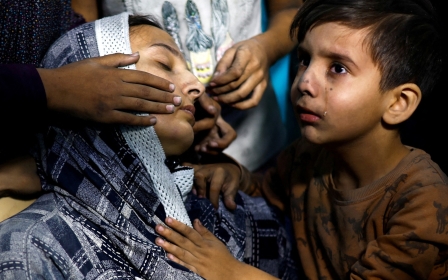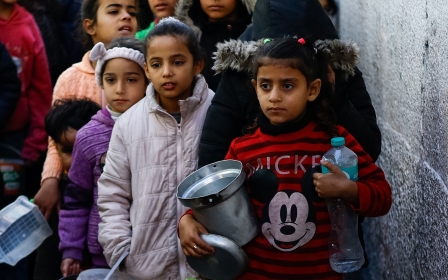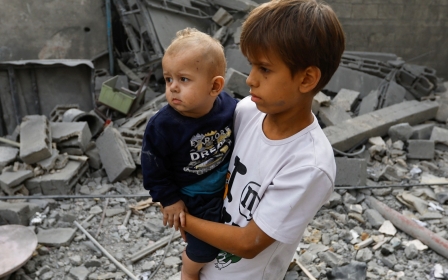War on Gaza: The guilt and rage of being a diaspora Palestinian
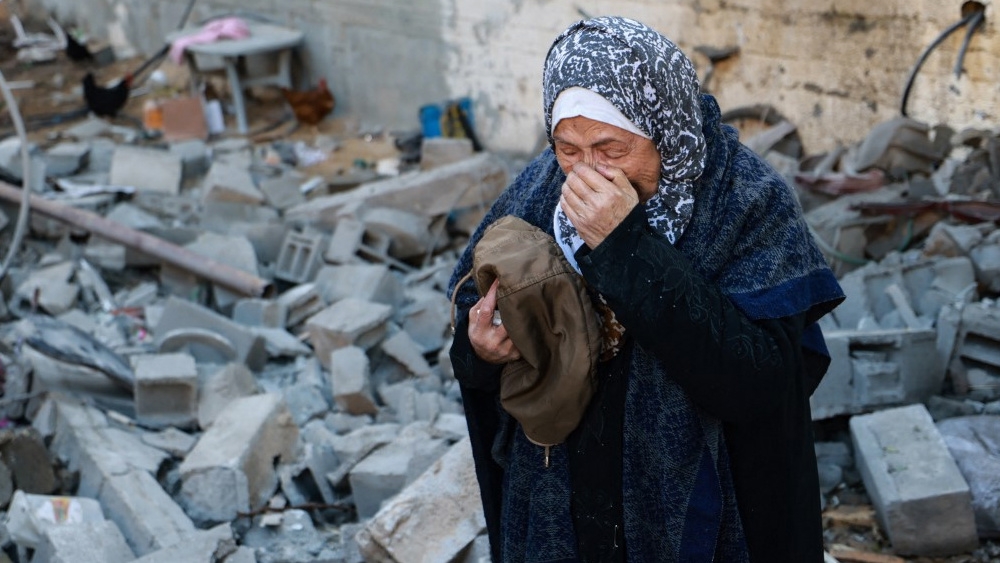
Survivor’s guilt, which refers to the painful feelings caused by remaining alive in a situation where others have died, has become a reality for many diaspora Palestinians from Gaza. We are safe, while our loved ones have been stranded in a war zone for the past four months.
The messages and phone calls I receive from my family in Gaza have gradually become shorter. They are emotionally drained and no longer want to speak.
The long chats we used to have at the start of the war about the Israeli bombings, the shortage of day-to-day essentials, my family’s wellbeing, and their concerns about the day after the war, have been replaced by sighs and cliched responses: “We’re still alive,” there’s “nothing new” happening, or it’s “just another day in Gaza”.
When the war started, I used to cry every day. But the videos and stories coming from Gaza eventually broke me, and I stopped crying. Instead, I was full of rage towards the world.
I was angry at the ignorant people who do not know what is happening in the Middle East. I was angry at the politicians trying to justify the killing of innocent civilians. I was angry at the countries that agreed to send more weapons to Israel, but not more humanitarian aid to Gaza.
New MEE newsletter: Jerusalem Dispatch
Sign up to get the latest insights and analysis on Israel-Palestine, alongside Turkey Unpacked and other MEE newsletters
Today, however, after more than four months of war, I am numb.
One of the worst feelings a person can have is the inability to help their loved ones in a time of need. Not only can I do nothing from the UK, but the international community and millions of protesters have been powerless to stop Israel’s brutality.
Painful questions
I still have to wake up every morning, take my son to school, work, go out, socialise and pretend that I am a normal person with normal, first-world complaints. But doing all these mundane tasks makes me feel guiltier than ever.
Why am I not there with my family? Why is it okay for me to feel safe when they cannot? Why am I treated like a person with full human rights in the UK, while if I were in Gaza today, I would not be entitled to basic rights? Why can I have clean drinking water by just turning on the tap?
Follow Middle East Eye's live coverage of the Israel-Palestine war
Even though I know all the rational answers to these questions, my brain seems unwilling to accept them. Nothing about what is happening in Gaza makes sense to me anymore.
As someone who survived three previous Israeli wars on Gaza, this conflict has brought back many dark memories. The sound of passenger planes has started to scare me again. I constantly remind myself that they are not warplanes. I am back to having nightmares of wars and invasions, running away from threats all the time, even while I sleep.
We hear the cries of newly created orphans, while the world scrolls through this footage as if it is no longer real
Being a Palestinian from Gaza living abroad at this particular time is incredibly challenging. In the early days of the war, I felt obliged to explain to everyone that history did not begin on 7 October. I was asked multiple times whether I condemned Hamas, before I was asked how I felt about my family being displaced after their house was bombed.
As the death toll and destruction in Gaza increased, people around me have shown more understanding and sympathy. Yet still, after four months, no one asks me about Gaza or my family. I’ve realised that if anything is on the news for too long, people tend to lose interest.
Martin Griffiths, the UN’s emergency relief coordinator, described in an interview late last year the terrible suffering of trapped civilians in Gaza: “No family can plan for their future … I see these things all over the world, but this is beyond my imagination. And it will get worse.”
Emotional exhaustion
To Palestinians from Gaza, including me, this war is the worst ever because of our powerlessness. We cannot grasp how this war is continuing while it is being live-streamed.
We watch children being pulled out of the rubble in pieces. We hear the cries of newly created orphans, while the world scrolls through this footage as if it is no longer real.
Every time I send a message to a family member and only get one tick, showing it has not been successfully delivered to their phone, I panic and start thinking of the worst-case scenario. This persists until their internet connection is restored and I see two ticks. Only then can I experience some relief, at least until the next message.
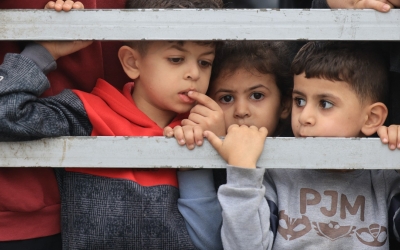
This war has shown us how people are not all viewed as equal, how human rights are not granted for all humans, and how international law and the Geneva Conventions can be tailored to suit those in power.
As a Palestinian from Gaza in the UK, I have written to my MPs, and participated in demonstrations, vigils and charity events to support Palestine. I have contacted embassies in an effort to bring my family from Gaza to the UK, but it has all been for nothing. I was, and still am, helpless and hopeless.
The emotional exhaustion I feel today as a result of this war is beyond what I can take, but I feel embarrassed to complain. At least I have the luxury of putting my head on my pillow each night, while bombs drop over the heads of my loved ones in Gaza.
When I meet my Palestinian friends in the UK, it terrifies me to ask about their families back home in Gaza. The “what ifs” are too overwhelming.
Once I gather the courage to do so, we discuss whose family has evacuated the most times, or whose family is still struggling to find food, water or a place to stay. The most painful conversations, however, come when someone has just lost a loved one.
The views expressed in this article belong to the author and do not necessarily reflect the editorial policy of Middle East Eye.
Middle East Eye delivers independent and unrivalled coverage and analysis of the Middle East, North Africa and beyond. To learn more about republishing this content and the associated fees, please fill out this form. More about MEE can be found here.



